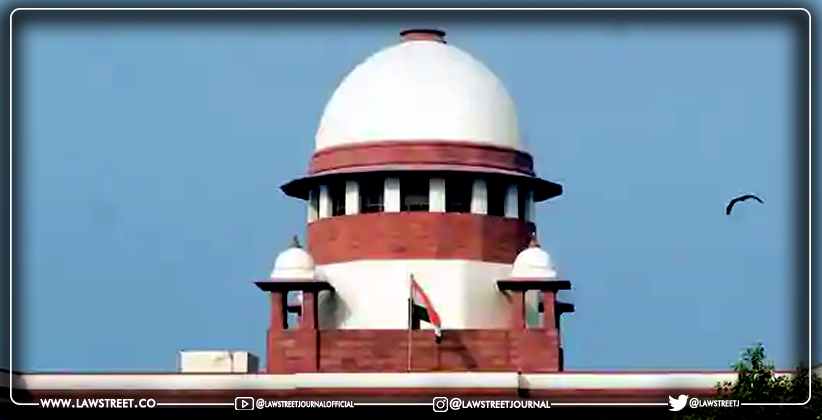The Supreme Court earlier today (04/05/2021), struck down the West Bengal Housing Industry Regulation Act, 2017 for repugnancy with the Central law, The Real Estate (Regulation and Development) Act, 2016 (RERA).
The judgement was given by a bench comprising Justices DY Chandrachud and MR Shah.
The matter came up before the Supreme Court as a writ petition (Forum for Peoples Collective Efforts v. State of West Bengal)filed by an NGO stating that the refusal of the West Bengal Government to implement RERA has resulted in losses for the state's home buyers.
The RERA was enacted by the Parliament in the year 2016 to holistically cover the legal requirements in real estate transactions by referring to the entries 6 (property transfer), 7 (matters of contract) and 46 (matters concerning the jurisdiction of courts other than Supreme Court) of the Concurrent List in the Seventh Schedule of the Constitution of India. Complying with the provisions of RERA the West Bengal Government had also notified draft Real Estate (Regulation and Development) Rules, 2016 and public consultations on the rules were also undertaken. But no further actions were taken to finalise the rules.
In 2018 the state enacted the West Bengal Housing Industry Regulation Act, 2017 which the petitioner alleged was related to the sale of housing property. The petitioner argued that though the state law talks about the housing industry and housing for all it was majorly concerned with the sale of products of the housing industry.
The state enactment was challenged by the petitioner based on Article 254 of the Constitution of India which lays down that in the case of an overlap between central and state laws in the concurrent list, the central law will prevail. It was submitted that the state law overlaps with the central law on several provision.
The court after hearing the counsel for the petitioner who pointed out the similarities between the two enactments held that:
From our analysis of RERA and WBHIRA [West Bengal Housing Industry Regulation Act, 2017], two fundamental features that emerge are that WBHIRA overlaps with RERA and is copied word to word and it does not complement RERA. Both the statutes refer to the same entry in the concurrent list,
During the hearing, the court also clarified that the doctrine of the occupied field as applied to the enactments in the concurrent list holds that even if there is no overlap between the central and state laws, if the central law is made to exhaustively cover matters of an entry, then there will be a repugnancy.
But the court observed that in the present case there was a word-to-word copying of the central statute such that a test of repugnance based on the identity of subject matter is established. It was further observed that:
West Bengal has attempted to establish a parallel regime which is not Constitutionally permissible
The court further observed that the only way for state enactment to survive the challenge of repugnancy is for it to get the assent of the President, as given in Article 254(2) of the Constitution, but in the present case no such assent has been obtained. It was held that:
It is an admitted position that the State of West Bengal neither reserved the impugned State Act for consideration of the President nor had ever obtained the Presidents assent in spite of the fact that the entire field stood occupied by RERA, 2016 enacted by the Parliament."








